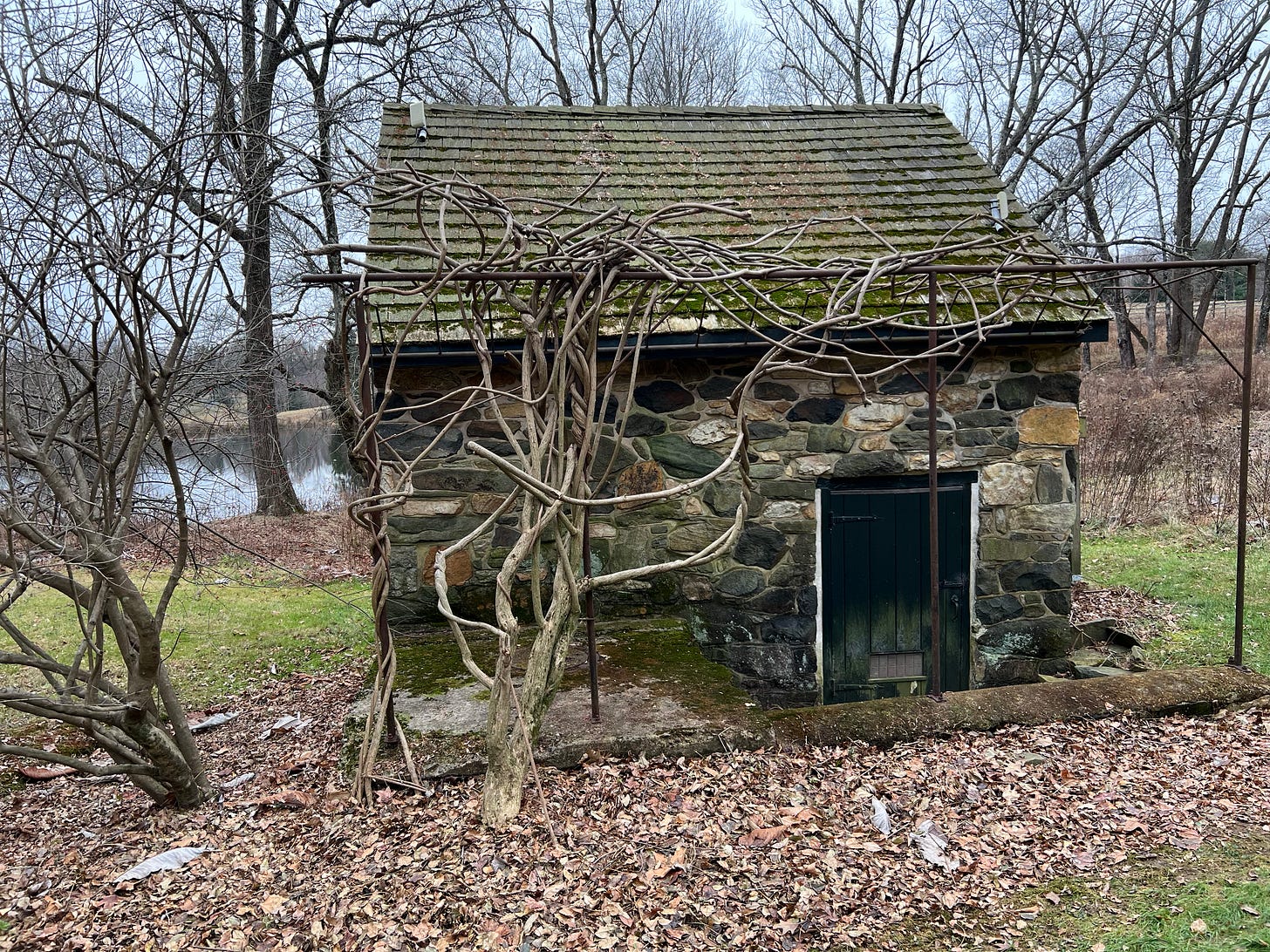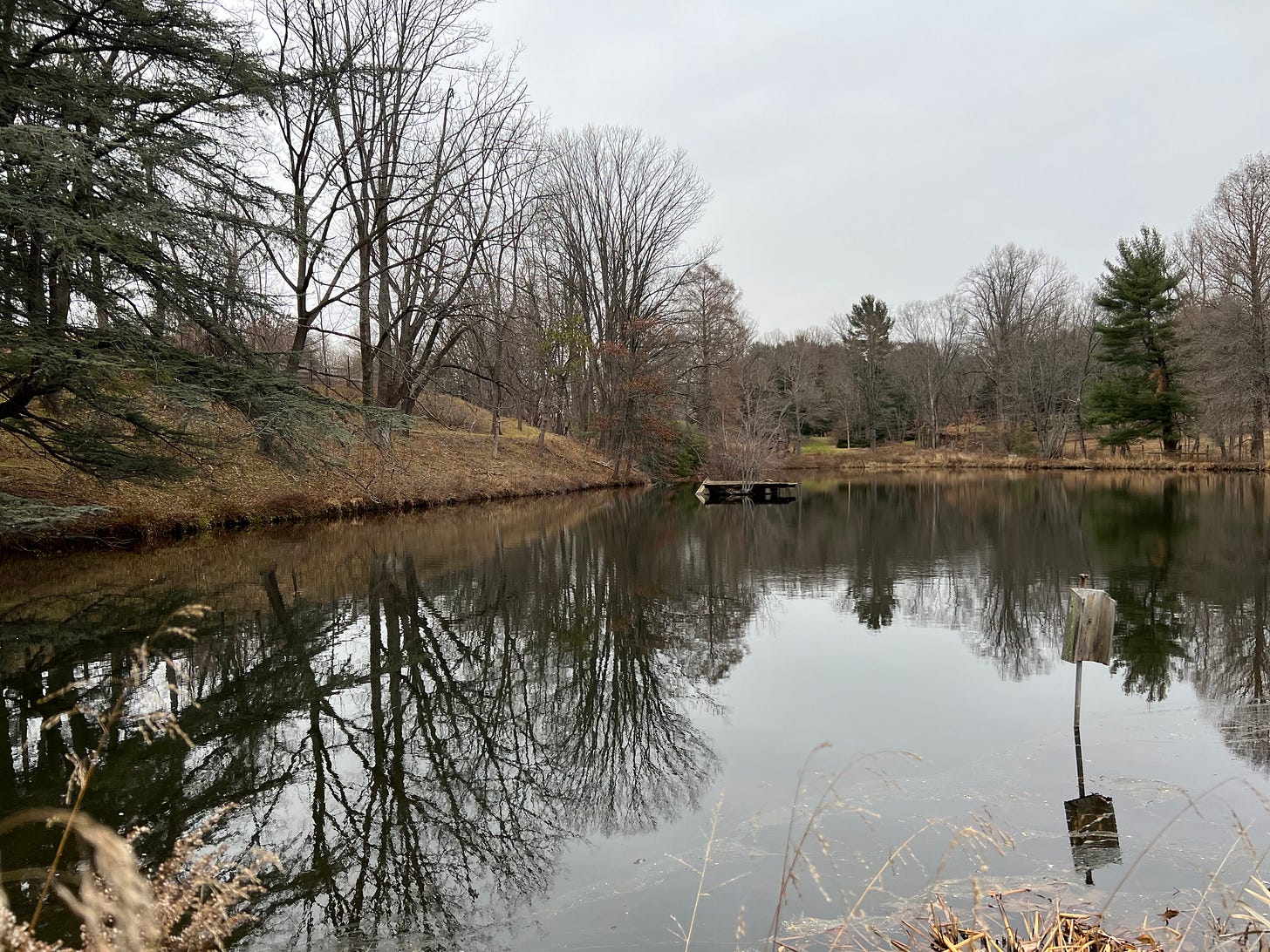My wife’s grandmother was an environmentalist in her way, an important promoter of native plants. When she died, one of the readings—which I believe she’d selected herself—came from the book of Genesis. You don’t see readings from Genesis at a funeral every day, but I found it profoundly appropriate.
Without Genesis we are nothing, and that applies whether as a religious believer you buy into the whole seven-day thing or you read that word with a small “G” and understand one must first exist in order to worry about anything else.
There’s so much dead in the winter landscape right now that it’s hard to think of beginnings, but without genesis there is no Christmas.
Let’s get on to my 12 Miracles of Nature—aka Without This Stuff There Wouldn’t Be Any Backyard Stewards Because Life on Earth Wouldn’t Be Life as We Know It.
1. Sunshine
Outer space is a pretty cold and barren place—negative 453.8 degrees Fahrenheit, according to NASA. That great flaming orb in the sky provides the primary energy that feeds carbon-based life forms. Not incidentally, it also provides the source of our possible salvation from anthropogenic climate change—solar energy in the form of photons and wind.
2. The Carbon Cycle
Carbon underpins all known living things. The carbon cycle is our humble human way of describing the vast interchange of carbon atoms from the atmosphere through living organisms and back into the atmosphere ad infinitum—or until we screw it up, which would take a lot of self-destructive behavior on the part of humans, but so far our track record is not looking great.
3. Photosynthesis
A shout out to the process whereby algae, plankton, green plants, and cyanobacteria turn light into chemical energy. Oxygen didn’t appear in our atmosphere in enough quantity to sustain animal life until 2.33 billion years ago, and we have an ocean of cyanobacteria to thank for that, since oxygen is a byproduct of photosynthesis.
4. The Ozone Layer
Our sun is a good thing, but you know what they say about too much of a good thing. Without the protective ozone layer—which sits a mere 15-30 km above our heads—our lives would be nastier, more brutish and shorter. As a bonus, the world’s collective actions to reverse manmade harm to the ozone layer demonstrated that we have the capacity to solve big environmental challenges without sacrificing our quality of life.
5. The Water Cycle
If water didn’t evaporate into the atmosphere and fall to the ground as precipitation, if it didn’t run as rivers and pool into freshwater lakes and aquifers, and if it didn’t hold in frozen form at the tops of mountains for a time, slowly releasing as meltwater to communities below, much of the planet would be uninhabitable. Climate change won’t put an end to this cycle, but it may screw it up beyond recognition. Only three percent of earth’s water is fresh as it is.
6. The Atlantic Meridional Overturning Circulation
The AMOC is a system of ocean currents driven by changes in salinity and temperature known as thermohaline circulation. Let’s let NOAA explain: “The circulation process begins as warm water near the surface moves toward the poles (such as the Gulf Stream in the North Atlantic), where it cools and forms sea ice. As this ice forms, salt is left behind in the ocean water. Due to the large amount of salt in the water, it becomes denser, sinks down, and is carried southwards in the depths below. Eventually, the water gets pulled back up towards the surface and warms up in a process called upwelling, completing the cycle.”
These currents distribute nutrients and oxygen to animals living in the ocean and dictate a lot of weather patterns in the Atlantic, particularly making Northern Europe much more habitable—and appropriate for agriculture—than it otherwise would be. Climate change, if it remains unchecked, will mess this up to the detriment of a large portion of humanity, including those of us living on the East Coast, where sea levels will rise (NOT counting the effects of further ice melt) by several feet.
7. Decomposition
Imagine if every time something died or got digested by an animal, its remains just sat there forever. Yuck. The organisms that take on the lowly task of decomposing dead organic matter should receive our highest praise.
8. Fire
The scientist Stephen Pyne coined the word Pyrocene to argue that homo sapiens’ command of fire enabled us to evolve to have smaller stomachs and bigger brains. And, of course, much transportation and electricity—most human progress—relies on contained fire. Now, we need to stop burning things and usher in the Age of Renewables. Everything has its time. But we should also acknowledge that wildfires set by lightning over millennia aided the carbon cycle in myriad ways—to the point that some plants evolved to rely upon fire. If we can replace fossil fuel burning with renewable energy, maybe we can get back to the day when wildfires were really wild and had their place in the balance of nature.
9. Soil Life
More than sixty percent of all life exists below ground, and we take that fact for granted at our peril. All those organisms and microorganisms sustain a degree of fertility—and provide other ecological services—upon which much of the plant world (and by extension ourselves) depends.
10. Flowering Plants
I don’t know whether we need angiosperms to survive, but without them our lives would be much poorer. They emerged more than 100 million years ago, so humans have never existed without them by a long shot. In addition to producing wood, angiosperms give us grains, sugars, fruits, vegetables, nuts, and cooking oils. They also feed the soul through the beauty they provide. The pleasures of backyard stewardship would be greatly diminished without flowering plants.
11. Insects
Arthropods pollinate many of our plants, feed birds, reptiles, amphibians, fish, and in some cases people directly. Certain insects also play an essential role in decomposition. And many of them add beauty to our world. Habitat destruction and the indiscriminate use of pesticides and herbicides are causing insect populations to crash. If these practices continue, the variety of foods available to us will plummet and we may very well face silent springs and summers.
12. Biodiversity
The abundance of life is nature’s greatest gift to us. We exist in the biome, a web of species—many of them invisible to the human eye—that mutually support one another in ways large and small, with many relationships not yet fully understood. Celebrate this diversity by supporting all living species any way you can.
Unto all of us a world is born every morning. May you appreciate and nurture it all the days of your life.
Peace.
The springhouse in winter:
The big pond looking northeast:




